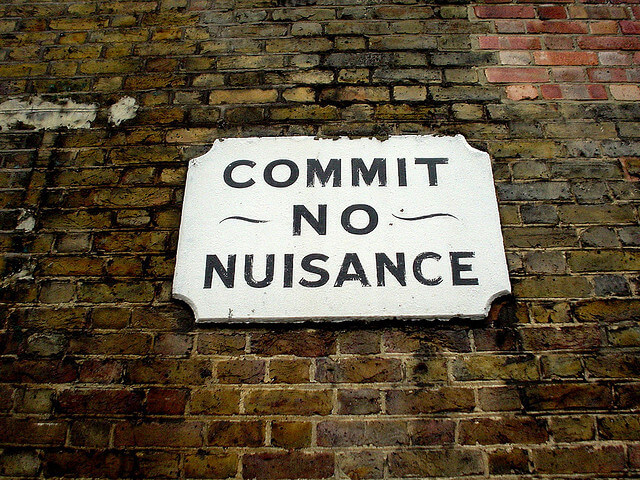Practice Areas / Nuisance evictions

Evicting a tenant under the theory of a nuisance
![]()
When a tenant interferes with the comfortable enjoyment of life or property, the behavior can be loosely defined as a "nuisance."
This runs the gamut from playing loud music at night to operating a meth lab in the rental unit and everything in between. Believe us, our firm has seen it all, from minor irritants to the most shocking and depraved conduct imaginable.
From our hard-won experience, many nuisances can be avoided with careful tenant selection including checking past landlord references. Setting the expectations at the inception of the tenancy also goes a long way in avoiding problems later on, including an ironclad lease that spells out what is unacceptable. Yet not everyone lives up to their obligations.
Everyone can get on someone's nerves. For minor offenses when residents are not respectful of one another, landlords can kindly make the tenant aware of the nuisance before escalating the matter.
Yet when the nuisance is recurring or is serious in nature, a more stern warning should be made in the form of a written notice to "cure" the disruptive behavior. If the menacing tenant does not clean up their act, eviction proceedings can be commenced.
We hasten to say that when behavior is so egregious that it threatens life and limb, it cannot be corrected. Think about violence, drug dealing, and other illegal activity. In these cases, we can serve a notice demanding that the bad actor vacate the premises - it's not open to negotiation or discussion.
When there is clear and imminent harm to landlords or residents, our office can use a Temporary Restraining Order to remove anyone who poses a threat to health and safety, but this vehicle is reserved for the direst of situations.
A few additional thoughts in special circumstances
Whenever domestic violence rears its ugly head, the landlord has an obligation to address it proactively and be aware that the victim may be able to break the lease without penalty.
In cases when the tenant is engaging in hoarding behavior, some compassion and extra steps may be in order. That's because hoarding can be considered a mental illness and if the tenant or their attorney makes the assertion that the tenant is disabled, the tenant is entitled to additional protections under fair housing laws.
Finally, a nuisance must be proved in court. Evidence should be submitted, and this can come in many forms. It can be photos. It can be accounts by neighboring residents. It can be supported by police reports. It can be substantiated by any number of things.
Rectifying a nuisance can be easy or it can be hard, but when it becomes a bit involved and there are murky legal issues, Bornstein Law is the firm to address these types of grievances.
